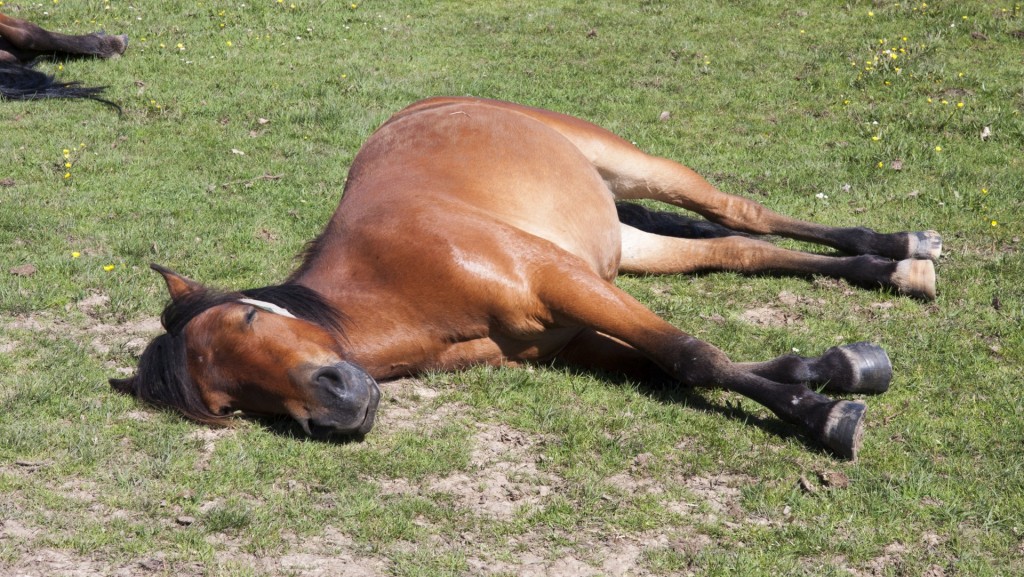“They lie about marijuana. Tell you pot-smoking makes you unmotivated. Lie! When you’re high, you can do everything you normally do just as well — you just realise that it’s not worth the fucking effort. There is a difference.”
– Bill Hicks
The relationship between cannabis and motivation is, on the face of it, seemingly obvious. Bill Hicks’ cutting words on the subject are a comic example of most people’s assumptions about weed making people lazy. And so the latest study to come out of UCL last week quantifying the link between cannabis and motivation, both acutely and chronically, has provoked the usual media circus that such research tends to elicit.
Perhaps unsurprisingly, the press have played fast and loose with the limited, balanced and constructive conclusions of the paper, which show that cannabis does indeed reduce motivation in the short term, i.e. when you’re high, but reassuringly when you’re not high, long term use doesn’t appear to have a residual effect on motivation, at least within the limited bounds of the experiments described in the paper.
The study has been pilloried from all directions for being either unnecessary, unhelpful, or simply a case of boffins proving the patently obvious, with everyone from the press through to drug policy reform organisations and cannabis legalisation activists piling in. Worse, drug warriors have jumped on misleading press headlines and used the research indirectly as vindication of the deleterious effects of the Devil’s Lettuce.
In all the furore of tweets, comments sections and opinions, we felt the results of the actual research were getting lost, along with the opportunity to learn something constructive from them, as is sadly all too often the case when scientific studies are portrayed by the media. After all, it is just such research that is hailed as the basis for evidence-based policy. We called up Will Lawn, the researcher who conducted the study, to hear why this kind of research isn’t just helpful, it is absolutely necessary for developing our knowledge of drugs, and ensuring that evidence, rather than assumptions, influence both our relationship with drugs and the policies we construct for them.
VolteFace: Hi Will, could you tell us a bit about the research?
Will Lawn: We were interested in investigating the relationship between cannabis use and motivation because obviously for decades and decades people have said that smoking weed makes people lazy, basically. And that’s been written about in academic papers but hasn’t really been investigated with well-controlled research.
So our first experiment used a double blind placebo controlled trial. We gave people cannabis via a vaporiser, either cannabis itself or a placebo – we also gave them [one of] two different strains of cannabis. We then investigated how that affected their motivation on a task in which you could choose whether you could put a small amount of effort in to win a small amount of money or a large amount of effort in to win a large amount of money. And we found that while you were intoxicated on cannabis, as expected, you has reduced motivation for the money, i.e. you chose to put in less effort to get less money. Also within that experiment, one strain of cannabis had no CBD [the primary nonpsychoactive component in cannabis] in, whole the other had about 12 percent CBD, alongside the THC [the primary psychoactive component in cannabis]. We could investigate whether the CBD buffered the effects of the THC on motivation, which we didn’t really find. There was no real effect of CBD on the overall levels of motivation, so in that study we found that simply being high leads you to be less motivated.
Then in our second study, which was an observational study not an experiment, we compared cannabis dependent people with controls on the same task I’ve just described, but after 12 hours of abstinence. And of that study we found no difference between the two groups. which would suggest that long term cannabis use is not associated with long term demotivation. Having said that, because it’s a observational study rather than an experiment, you have to be more careful of the conclusions. I would say our results tentatively suggest long term cannabis use isn’t associated with decreased motivation, but there should be more research with larger samples, and longitudinal research, so investigating people’s cannabis use and motivation over different time points which allows better causal understanding.
Did you test if motivation was affected by cannabis differently in regular users vs nonusers?
We haven’t got plans to do that currently. In the first study, people were recreational cannabis users, but there was some variation in that group, so we did look at if you were more of a heavy user, whether the cannabis would have a weaker effect on your motivation, but we didn’t actually find that result, so in that study, it didn’t seem like the acute effect of cannabis on motivation was reduced if you were a heavier user.
In the future we’d like to increase the sample size greatly of the observational study, potentially by doing it over the internet. The sample size of the first study was 17 people, and then the second study had 40 people in, 20 cannabis users and 20 controls. We’d like to extend that to hundreds of people taking part online, recording how much cannabis they smoke and their motivation measures by that task, and that would provide extra evidence for this possibly connection between cannabis and motivation.
The task you used to measure motivation was pressing the space bar repeatedly, either 100 time in 21 seconds as the high effort option, or 30 times in 7 seconds as the low effort option. That seems quite an abstract task. Does the space bar test have limitations? Is it a standard test?
It’s a standard test for motivation within psychology that’s probably the most popular test at the moment. That doesn’t mean it doesn’t have limitations, I think it has clear limitations because the things that we’re often interested in are things like how motivated we are to get a promotion, or to work extra hours at work, or to maintain friendships, or to go after the girl or boy you fancy. So, whether or not it can be extrapolated to things like that is highly speculative, and I’d say that that is a significant limitation. And I think that it would be useful to extend the research to using proper double blind placebo controlled experiments to try to come up with situations that are more real, so, getting people to, say, see if it affects their capacity to work on their essays or similar. It would be very difficult to create those scenarios though.
Are there any existing examples in studies?
There are some studies from the 70s and 80s which put people in residential housing and then gave them cannabis and had them do really weird things like building stools and doing other strange tasks and then also looking at how it affects your socialising and things like that. And there are some interesting findings, but they haven’t ever been controlled. So people were smoking however much cannabis they wanted and they didn’t have a placebo. They didn’t make people smoke the same amounts and didn’t have a placebo control and so that’s a limitation.
What are the other limitations of the research and of the conclusions? The amounts of money used in the experiment are quite small, [50p reward for low effort, 80p to £2 for high effort] that’s quite different to, say, working to be able to pay the rent.
The second study has limitations because it’s just a cross-sectional study, that would be massively improved with bigger numbers of participants and also a longitudinal design. The first study, again that could be improved through more participants. It might also be interesting to look at other aspects of motivation, even if it was still in a kind of contrived way, pressing a button, or they sometimes use these handles that you can grip as hard as you can. It might be interesting to look at other rewards, like music, or food, or socialising, things that people actually like doing while they’re stoned. So that’s a limitation given that we only used money. And like you said, it’s a small amount of money, I would be interested to put them in a situation where they could be winning, say, fifty quid, and see if there really is an effect then.
I think the most interesting question is whether long term cannabis use makes you chronically amotivated, event when you’re not stoned. Our second study suggests that’s not that case, but I really think that’s an area that needs to have much more high quality research done, so I’d say that’s really the key thing to improve.
One of the other criticisms that’s been levelled against the study, which seems to be levelled against a lot of studies on drugs, is that it’s proved what we already knew: that cannabis demotivates people. How would you defend that?
Well I would say it’s true, we did have a hypothesis that it would do that, but there are lots of things that people think from anecdotes, and yet don’t turn out to be true. For instance, loads of drug myths, like if you take heroin once you’re going to be addicted for life, or if you take LSD seven times then it stays in your spine for months and months.
So the argument that because lots of people think it, means we shouldn’t check it is completely fallacious in my opinion because there are loads of things that people think – probably loads of things that that The Daily Mail propagate – that turn out to be completely untrue. This turned out to be something that we expected and was true, but there are plenty of other things which we expect but aren’t true. For example, recently they gave people these robotic babies to try to reduce pregnancy rates, and everyone expected that if you gave people these babies and the cried all night etc., you’d be less likely to have teenage pregnancies, but actually it significantly increased the pregnancy rate – so it’s a good example of when it’s worthwhile testing things empirically, otherwise we’d just believe anything that anyone said.
There’s no point in saying something in evidence based if you’re not willing to look at the evidence that’s being generated.
We may as well just stop doing a lot of research – just base everything on what someone down the pub says. That would be highly stupid.
How does your research inform our knowledge of the risks of drugs? What can be learnt from it practically?
The implications of the research for a regular cannabis user are positive – basically, if you want to do something, it’s probably best not to get stoned while you’re doing it, (which they probably already know,) because it will reduce your motivation, along with a few other things like extension of memory and stuff like that, but maybe you needn’t be so anxious about the chronic effects, in terms of motivation at least, according to these tentative results, because as long as you don’t smoke for 12 hours, then you’ll be fine. So really if you want to have a get up and go attitude, it might be worth just abstaining for 24 hours or so, and then you’ll hopefully return to where you were.
So in term of the risks of drugs, I suppose that actually, according to these results, it’s not really very dangerous. We expect acute effects, we expect short term effects. A more serious matter is if you stop taking them, are you still going to be affected?
How could your research inform people’s usage habits?
Obviously I would suggest don’t smoke it in the morning or the daytime, because that’s when we usually have to do stuff. I would recommend that to any kind of drug use – it’s always much more healthy to save your drug use for moderate consumption with your friends in the evening, probably on the weekends. That goes with anything really, and this research fits in with that. Do it when you’ve got an opportunity to not be motivated about anything.
What about debunking some myths about the safety of cannabis?
Can it be used to debunk the myth that cannabis is okay in all situations? Yes, there’s lots of research already showing that, when people are acutely high, they do have worse memory, they do have worse attention, and they are less motivated. I think you’d be hard pressed to in the argument that cannabis doesn’t impair you in the short term. But at least the results from this study suggest that, in terms of motivation, it might not impair you in the long term, at least when you’re not high.
I don’t know if that myth needs to be debunked, but if anyone who thinks that getting high doesn’t do anything to you when you’re high, then I would say they’re wrong.
It’s an interesting finding that long term motivation wasn’t affected, as that’s usually a claim levelled against cannabis by its critics.
Although that is definitely what we found, and I would support those findings, I would like to emphasise the need for more research in that area because it was a relatively small study. We’d like to do a bigger study, and hopefully corroborate that finding.
Thanks Will
Dr Will Lawn is a research associate in the Clinical Pharmacology Department, University College London. Tweets @will_lawn
Henry Fisher is Policy Editor at VolteFace. Tweets @_Hydrofluoric



